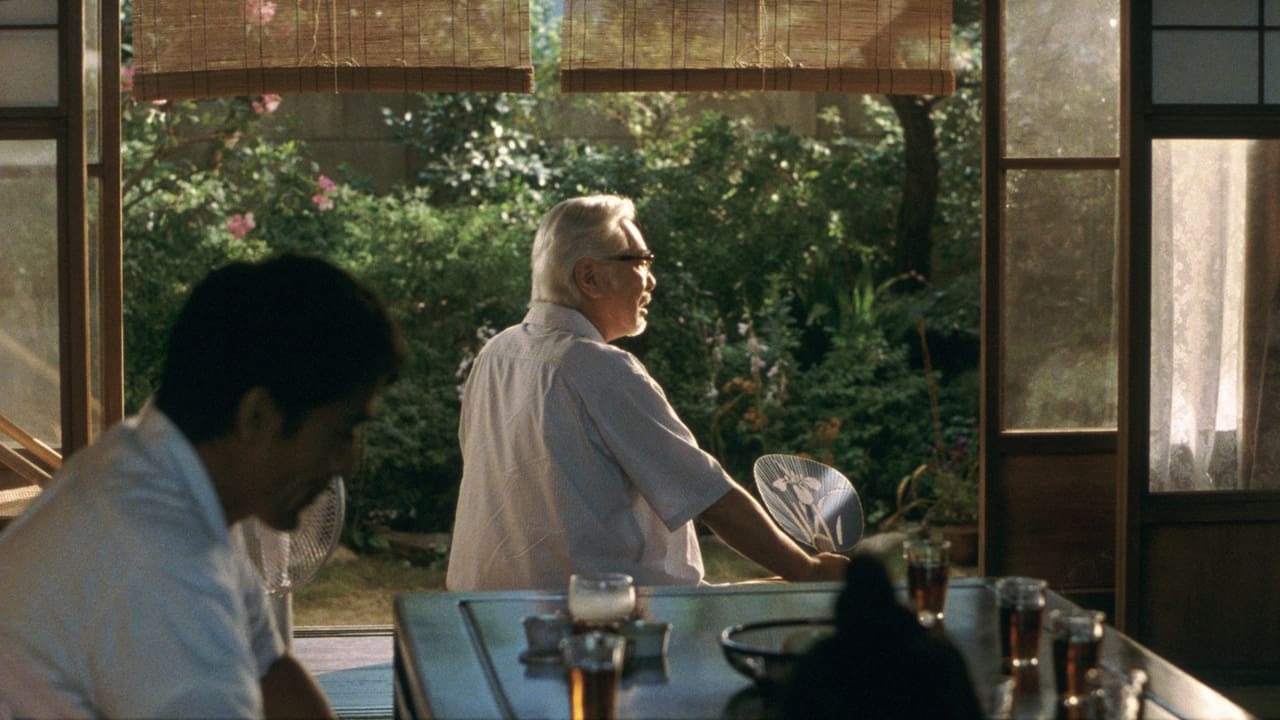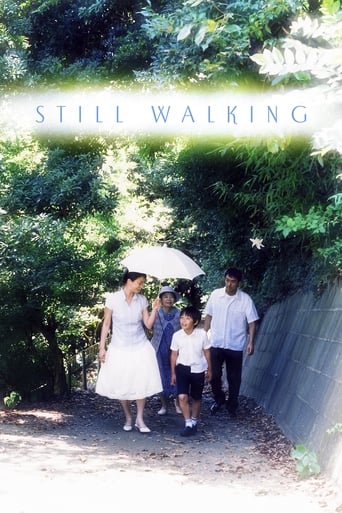

Slowly evolving family drama with the plot built around the visit of adult son and daughter with their families on the anniversary of the death of the older son. It is the first movie from the director and writer Hirokazu Koreeda that I have seen and I felt immediately in love with his style of telling the story. Formally focusing on everyday activities during the visit - preparing the food, walking, taking the bath - "family truths" and biases of parents towards children and vice versa are revealed. Focusing on common activities the movie provides its apparent simplicity, but each time when the viewer starts to be almost bored by its naturalism, he is surprised by some revelation of family relationships. In these small details the family relationships are becoming complex like the life itself. For me, as a person with an European cultural background, it was also very interesting to see how this family story that includes problems between parents and children characteristic for every culture, looks in the context of Japanese Shintoist and Budhist traditions. That is what I expect from a good movie: to touch topics common for the all human race and to show it in the context of specific cultures.
... View MoreThis one brings you so many memories. Its so plain yet so rich. I think even though the movie is Japanese everyone can relate. What makes it special it's the focus on our loved ones who are gone, and ignorance on those who are still alive. And the ending fills you with an impeccable regret. It also reflects the manners and behavior live on inescapable cycles. Only the one who has been sinful and experienced can see the damage they have created and then realize what they have done. You can have the most brightest mind but you will be back to your darkest roots if you ignore the simple things like your loved ones, your family. Don't resuscitate, that ain't worth nothing."It's always like that. I'm always a little late."
... View MoreThere is much in Japan that is romantic...but not in this family...The characters in this Japan are not romantically resigned to their fate but committed to renewing it and reminding themselves of their disappointment in it....disappointment is their normal...in that they are more Mizoguchi than Ozu...they even dabble in vengeance you'd find in a Kurosawa family drama...It is not uncommon for people to refuse to forget their past ... and enslaved by that past be all too often bound to repeat it...intentionally rubbing their fates in it...Resignation to fate may be romanticized in some films, but not here at this film's core...the power that moves these people is not their dreams but the nightmares, obligations, and uncredited family contributions that keep them from moving to their future....We have hopes for these people even if they don't hope much hope for themselves....and in our hope we have a wonderful movie...The only negative reaction I had was at the end when the narrator explained the future...through the film we saw enough of their future without it, and what the images didn't explain gave us enough to wonder how the narrator's relationship with his parents was resolved....as it is, he explained it and I wish he hadn't...I would have liked to imagine the possibilities...but that's the romantic in me.This story is mercilessly intimate, and recommended....
... View More'Still Walking' is a quiet film about a Japanese family which gathers annually to commemorate the life of a now dead member; perhaps you could say it's too quiet, especially as half of the visitors depart just half-way through. But it's shrewd on perceptive when it comes to observing the frailties and sensitivities that define us all, especially (although not exclusively) the natural cantankerousness of the old, even those who love us. For a westerner, part of the interest in this film is the way that it addresses universal themes, but from a peculiarly Japanese perspective. The resemblance of the grandfather to Colonel Saunders is purely superficial.
... View More